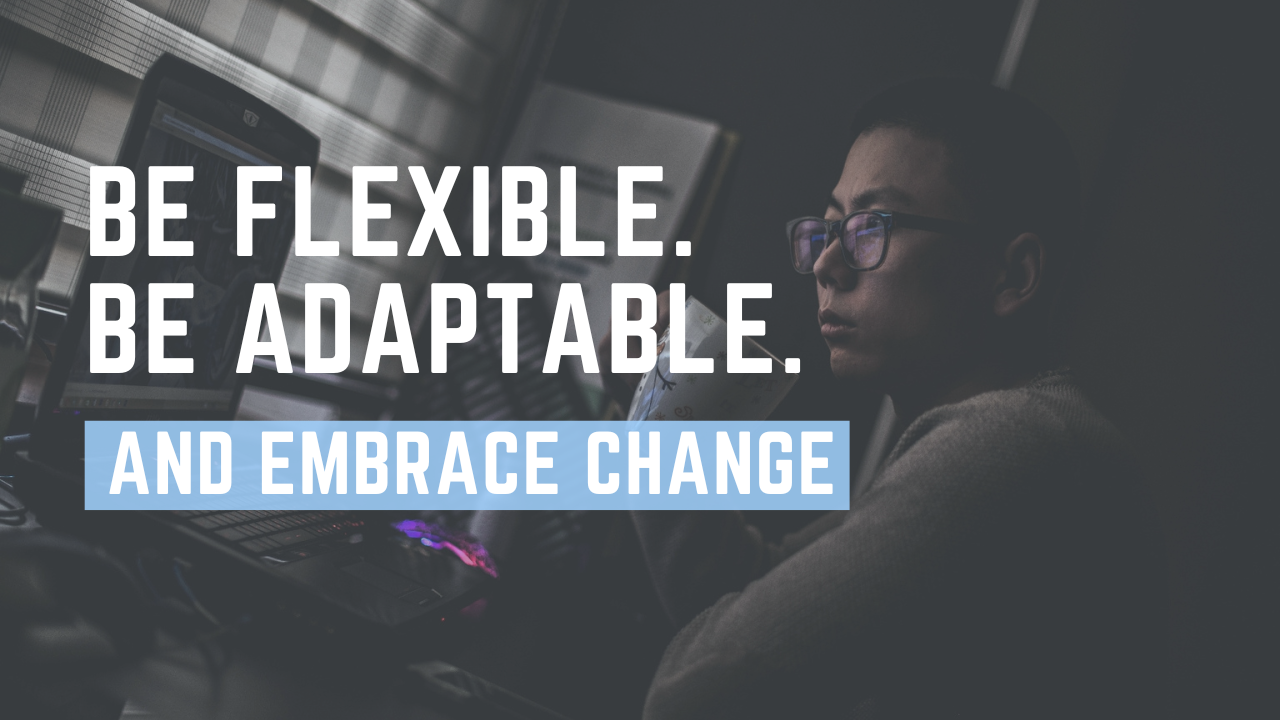Embracing Change: The Power of Flexibility and Adaptability in Business
Jan 09, 2025
Throughout my 30s and now into my 40s, I've navigated a winding career path that has led to the establishment of two successful businesses. I worked alongside my wife to scale her flourishing floral business in Charleston, which provided us the financial breathing room to complete graduate school and launch my own venture, Pathways Coaching.
The journey has been anything but predictable, marked by unimaginable client challenges, financial uncertainties, business audits, and industry shutdowns. Through it all, the most invaluable lesson my wife and I have learned as entrepreneurs is to:
Be flexible. Be adaptable. Even if it means embracing unimaginable change.
These aren't just vague business words. These are survival strategies. Being flexible means being willing to make significant adjustments to your business, sometimes in ways you never imagined. Adaptability means not just weathering storms but actively preparing for them, ensuring your business can thrive in any climate.
Understanding Flexibility and Adaptability in Business
Flexibility and adaptability are often mentioned together, yet they serve distinct roles in business. Flexibility is the willingness to change or compromise, while adaptability is the ability to respond effectively to those changes. Together, they form a powerful duo that can navigate the complexities of the modern business environment. They are often the difference between survival and losing everything.
Why Flexibility Matters
In a world where change is the only constant, flexibility allows businesses to remain competitive and relevant. It involves staying open to new ideas and different approaches and being willing to adjust strategies as circumstances evolve.
The Power of Adaptability
Adaptability takes this a step further by not just accepting change but actively embracing it. It involves foreseeing potential disruptions and preparing to respond proactively. Adaptability means making thoughtful adjustments that align with core business values and long-term vision, ensuring that the business can withstand and even capitalize on the changes it faces.
How Flexibility and Adaptability Have Shaped My Business Journey
Reflecting on my journey, the advice to stay flexible and adaptable has been pivotal. The more I work with entrepreneurs and small business owners, the more I realize how similar our challenges are and what common qualities the businesses that survive unexpected storms share. Smart business owners who are flexible and adaptable often come out of these storms in a better place than before. Why? Because adversity pushes us out of our comfort zones.
Are You Uncomfortable? Good.
This discomfort is a sign that you're evolving, potentially leading to significant breakthroughs. When you're comfortable, you're not challenging the status quo or innovating, which are critical for growth in today’s market.
Implementing Flexibility and Adaptability
Here are some practical tips for cultivating flexibility and adaptability in any business setting:
- Encourage Open Communication: Foster a culture where team members feel comfortable expressing ideas and concerns. This openness can lead to innovative solutions and more agile responses to change.
- Stay Informed About Industry Trends: Keeping up with changes in your industry helps you anticipate shifts and adapt more quickly.
- Invest in Continuous Learning: Encourage yourself and your team to continually upgrade skills and knowledge. An informed and skilled team is better equipped to handle changes.
- Develop a Flexible Business Plan: Having a business plan is crucial, but it's equally important to allow for flexibility in that plan to adapt to new information or circumstances.
- Test and Refine: Be prepared to experiment with new strategies, but also have mechanisms in place to analyze and refine these approaches based on performance.
Conclusion
The best business advice I've ever received—to be flexible and adaptable—has become a guiding principle in my approach to business. It has not only helped me navigate complex challenges but has also facilitated a culture of innovation and continuous improvement within my organizations. In today’s fast-paced world, these traits are more valuable than ever, ensuring that a business can not only respond to changes but also proactively drive change.


